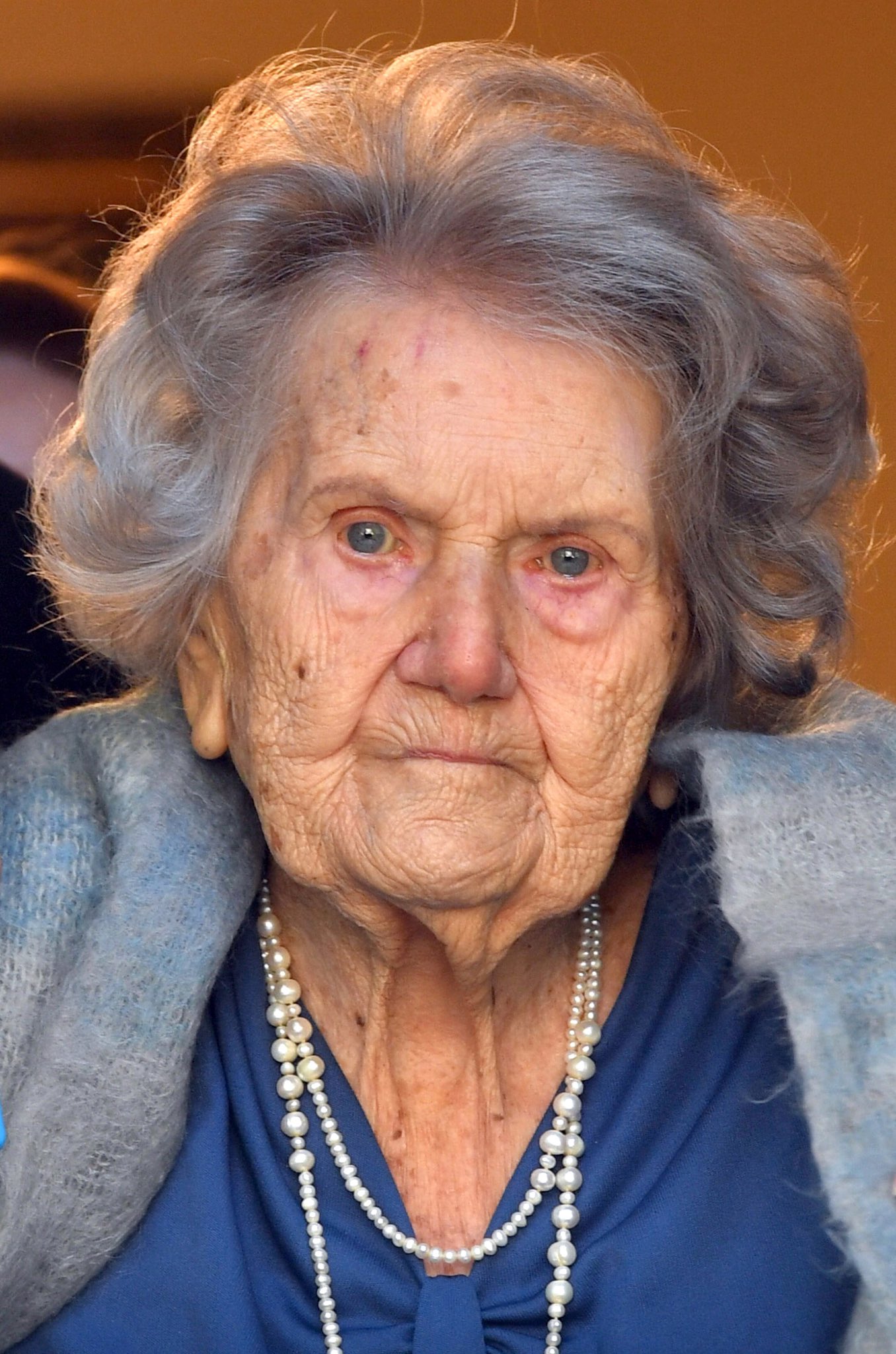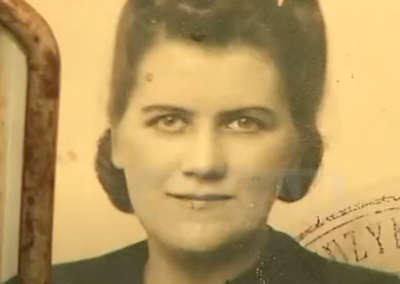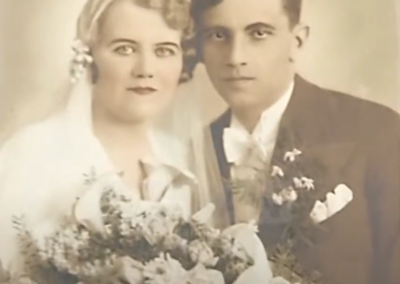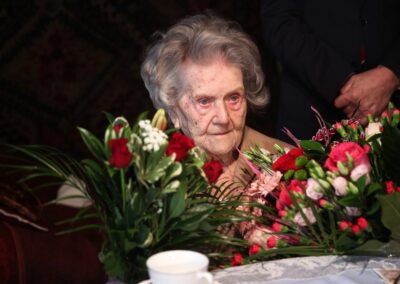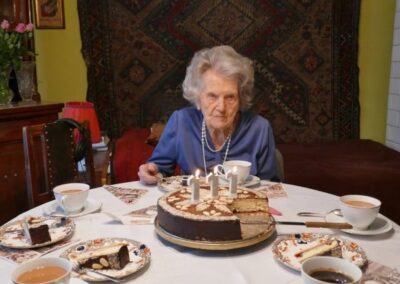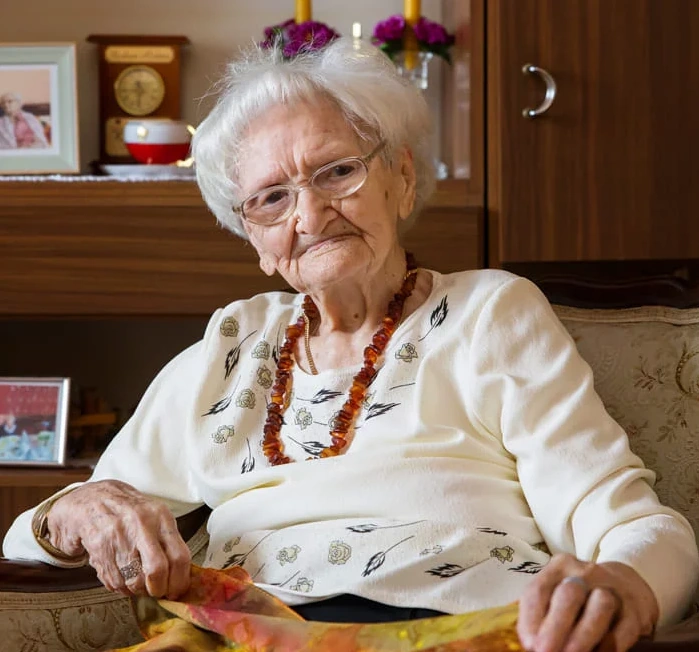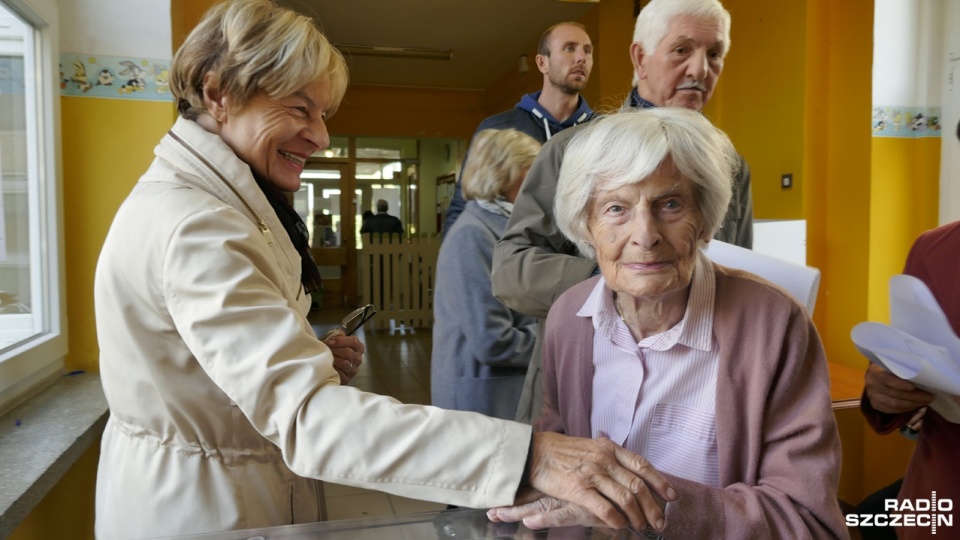Wanda Szajowska (née Zarzycka) was a Ukrainian-born Polish supercentenarian who was the oldest living woman in Poland, and possibly the oldest pianist in the world.
BIOGRAPHY
Wanda Szajowska was born in Lviv, Lviv Oblast, Ukraine (then Russian Empire), on 12 February 1911, to parents Aleksander Zarzycki (1879–1957) and Kazimiera Capińska (1887–1965). Her mother never worked, while her father served as a provincial councilor. She attended a school run by the Sisters of the Sacré-Coeur order, where lessons were conducted in both Polish and French. On 30 June 1931, she graduated with honors from the Lviv National Music Academy, specializing in piano.
During World War II, she participated in underground patriotic gatherings, performing works by Fryderyk Chopin to help sustain the spirit of patriotism among members of the Polish resistance. In 1945, following forced repatriation, she relocated to Kraków. There, she enrolled in the Faculty of Art History at Jagiellonian University, once again graduating with distinction, as she had in Lviv. In 1950, she earned her degree in art history. During the move from Lviv, she made sure not to leave behind her piano, a cherished heirloom from her grandmother, Wanda Szajowska, on which she had practiced etudes in her youth. The piano survived the war, hidden in a shed near Lviv, and she continued to play it throughout her life. On her 111th birthday, she performed a concert for guests gathered outside her home.
Szajowska met her future husband at the age of 16, but her father insisted that they could only marry once her suitor had completed his doctorate. However, the marriage did not last. When World War II began, her husband, Roman Szajowski, left for England and never returned.
Throughout her career, she dedicated herself to inspiring a love of music in younger generations. She taught piano to children at the Experimental Piano Studio, which had been operating since around 1946 and was later renamed the Experimental Music Studio, located in the heart of Kraków. Among her students were several renowned figures in the music world, including conductors Antoni Wit and Jerzy Salwarowski, organist Jacek Kulig, music theorist Teresa Mięsowicz-Malecka, and composer Krzysztof Meyer.
At the age of 100, she underwent hand surgery after breaking her wrist. On her 110th birthday, the Voivode of the Lesser Poland Voivodeship, Łukasz Kmita, presented her with the Medal of the Centenary of Regained Independence, awarded by the President of the Republic of Poland, Andrzej Duda.
Wanda Szajowska passed away in Kraków, Lesser Poland Voivodeship, Poland, 26 August 2022, at the age of 111 years.
RECOGNITION
On 19 August 2022, following the passing of Tekla Juniewicz, she became the oldest living person in Poland, at the age of 111 years, 188 days. She held the title for only seven days, until her own passing, when she was succeeded by Jozefa Ciesielska.
Her age has not been validated.
ATTRIBUTION
* Wanda Szajowska (Zarzycka) – Geni
* “Pani Wanda ma 108 lat, jest najstarszą Małopolanką i nadal gra na fortepianie!” – Aleteia Polska, 20 May 2019
* “Najstarsza Małopolanka z Medalem Stulecia Odzyskanej Niepodległości” – Małopolski Urząd Wojewódzki w Krakowie, 12 February 2021
* “Krakowianka skończyła 110 lat. Najstarsza pianistka świata nadal gra” – Dobre Wiadomości, 16 February 2021
* “Perła z Salwatora najstarszą Polką!” – Niedziela.pl, 19 August 2022
* “Kraków pożegnał swoją najstarszą pianistkę. Wanda Szajowska spoczęła na Salwatorze” – Gazeta Krakowska, 2 September 2022
* “Najstarsza Polka, pianistka Wanda Szajowska spoczęła na cmentarzu Salwatorskim w Krakowie” – Dzieje.pl, 2 September 2022
Related Profiles
[crp limit=’4′ ]

